Confederate Truths: Documents of the Confederate & Neo-Confederate Tradition from 1787 to the Present.
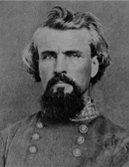

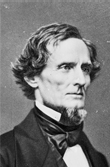
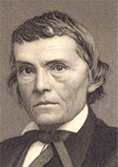

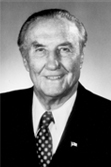
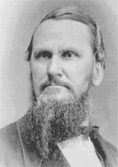
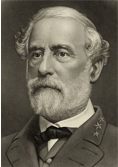
Slavery, the Ku Klux Klan and the mision of the "Confederate Veteran"
Confederate Veteran, Vol. 25 No. 11, November 1917, pp. 502-3. Shown is only extracts from the article, introduction and sections on slavery and the KKK. The Confederate Veteran was the official publication of the United Confederate Veterans, United Daughters of the Confederacy, Confederated Southern Memorial Association, and
THE MISSION OF THE VETERAN.
BY JAMES H. M'NEILLY, D.D., NASHVILLE, TENN.
The Veteran receives occasionally letters from Northern writers criticizing and condemning its course in vindicating the principles for which the South fought in the War between the States and in defending her attitude to negro slavery and in justifying her resistance to the infamous Reconstruction tyranny which followed the war.
It is held that we of the South ought to teach our children that the doctrine of States' rights was false and secession a crime, that our system of domestic servitude was a sin against which the enlightened conscience of the world revolted, that we should be ashamed of the treatment of prisoners in Southern prisons, and that we should condemn the Ku-Klux Klan as a band of midnight assassins.
Let it be understood that the Confederate Veteran is a historical magazine intended to set forth the principles for which the South contended, to vindicate those principles as in thorough accord with the Constitution which bound the States in union, to give a true account of the conduct of the war, a defense against an unlawful and ruthless trampling on her rights and invasion of her territory, and incidentally to show the nature of our domestic institutions which were so malignantly misrepresented to the world and so recklessly destroyed. In a word, it is our endeavor to assert with solemn conviction that might does not make right, that brute force never can be the proof of righteousness and truth; otherwise the strongest bully in a conflict would be the righteous man.
Ever since the close of the war Northern writers and speakers have sought to discredit and dishonor the cause and the conduct of the Confederates in the eyes of their children of the present and coming generations. The Veteran seeks to present correctly the attitude of the South to those great questions in which her conduct has been most severely arraigned.
As to Slavery.
Probably no people were ever more thoroughly, systematically, and persistently misrepresented than was the South by the abolition propaganda in regard to her treatment of the slaves. This domestic institution was denounced to the whole world as "the sum of all villainies" and the slave-owner as a sinner above all men and unworthy of fellowship with Christians, and oceans of crocodile tears were shed over the imagined sufferings of innocent and helpless human beings.
Now, while there were serious evils connected with the institution, as there are with all human institutions, and while no one in the South would advocate slavery as an abstract question of right or wrong, yet it was a condition and not a theory that confronted the Southern people. Negro slavery was an inheritance from a far past; it had been largely forced on the colonies by the tyranny of the mother country, aided and abetted by the active efforts of the New England colonies engaged in the African slave trade. The most serious question for a thoughtful and just people was to adjust the relations of the two races, so widely different in nature, capacity, and culture—one the "heir of all the ages and in the foremost files of time"; the other just taken from the slavery of a most degraded barbarism. Amalgamation was out of the question; the culture of the white man was impossible for the negro; and so the only thing to do was to make him the servant of the white man, and the institution became so wrought into the social and economic life of the South and the relation became so kindly that there has never existed a working class more contented and better cared for, and that not merely as to physical care, but also as to their spiritual interests, attested by the fact that probably two millions of them in the century before 1861 were brought into the Christian Church. The determination of Mr. Lincoln and his party was to force emancipation, with all its serious problems, upon the South by preventing her from access to any of the territories with her institutions, although these very territories had been won largely by her prowess and statesmanship, and some of them were especially adapted to slave labor. This the South resented and resisted with all her resources. Her increasing negro population needed room. The question of the future freedom of the slave under progressive moral and industrial conditions could be safely left to the conscience and wisdom of the people. But they could not recognize the relation as in itself sinful in a world where right and wrong are so often determined by circumstances. …
… As to the Ku-Klux Klan.
It is charged that the secret organization known as the Ku-Klux Klan showed the disloyal and lawless spirit of the Southern people, of which we should be ashamed. But those who know of that wild orgy of corruption, graft, thievery, and lust, miscalled Reconstruction, which was forced on the defeated South by hatred and cowardice, know also that one of the strongest agencies in delivering us from the rule of the carpet-bagger and the scalawag was the Ku-Klux Klan.
The basis of the carpet-bag government was the ignorant negro vote, and its purpose was to put in power a horde of hungry alien vultures by investing the negroes and their allies only with citizenship and so fattening on the carcasses of dead States. But the Ku-Klux Klan, originated in a spirit of fun by some young men, became a mighty agency in nullifying the negro vote. The organization was perfected by some of the best and most patriotic men in the country. That solemn band of night riders in their ghostly apparel, their mysterious movements, their dread warnings in the sepulchral tones of the dead so appealed to the superstitious fears of the negroes that they were glad to give up all political ambitions.
The Klan seldom had to resort to violence, and then only when some terrible outrage by ignorant negroes or brutal white men demanded instant punishment. As soon as the original purpose of the organization was accomplished it voluntarily disbanded; and the great mass of testimony before the committee of Congress, where not palpably false, tells of outrages by irresponsible parties who assumed the garb of the Klan to cover their private or personal wrong-doing. The Reconstruction policy it is that ought to bring the blush of shame to the cheek of every true American.
The Veteran believes that when any people becomes indifferent to the epic periods of its history and careless of the name and fame of its heroes, that people has lost its highest ideals and has become degenerate, sunk in the slough of mere materialism. Therefore we seek to perpetuate the memory of the pure motives and the heroic sacrifices of the men and women who in the South gave their all in defense of their constitutional rights in a federated republic. They were defeated, it is true, and the republic became a nation. They yielded in good faith to overwhelming force. Henceforth it is our duty to strive with all our resources to make the nation a guardian of liberty and justice and to hold it faithful to the Constitution which it has adopted.